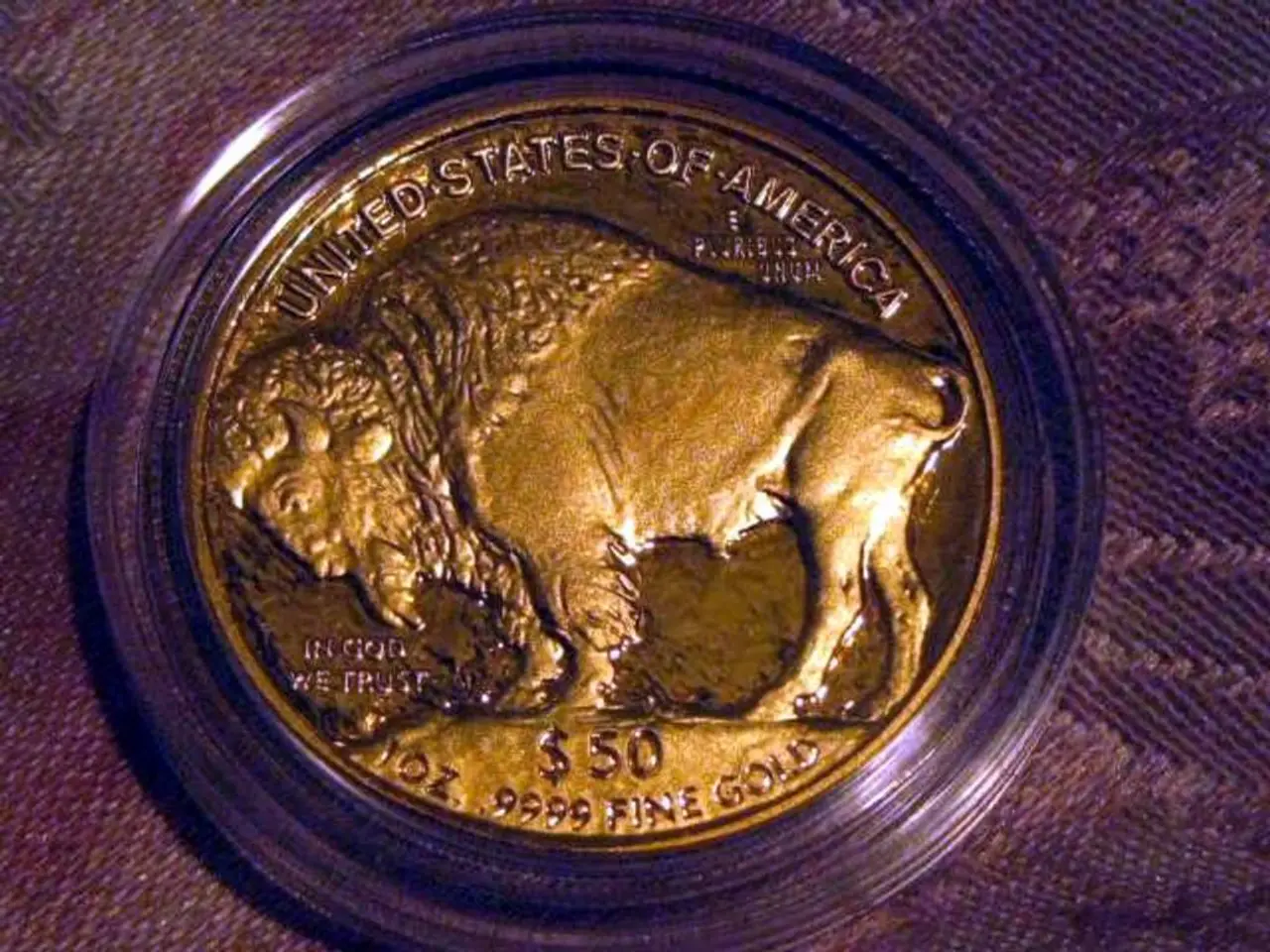Dollar's Tune Emerges Ahead of Schedule
The US Dollar's significant role in the global economy, as stated by Jörn Quitzau, the Chief Economist of Swiss Private Bank Bergos, could deter investors from risking a financial crisis. In an interview conducted by Stephan Lorz, Quitzau expressed his concerns about a potential financial crisis due to the "Big Beautiful Bill" passed by the Trump administration.
The "Big Beautiful Bill" is expected to drive up public debt and interest rates, according to Quitzau. This massive increase in US federal borrowing, driven by the One Big Beautiful Bill Act (OBBBA), significantly expands the national debt—pushing it toward over 130% of GDP by 2035, surpassing even World War II-era levels.
Warren Buffett and other financial thinkers emphasise that the US Treasury market underpins the global capital markets. If investor confidence in US debt erodes due to the ballooning deficit and debt load, it could trigger an investor strike—where investors refuse to buy new debt unless offered much higher yields. Such a scenario could cause turmoil not only in US markets but globally, threatening the entire financial architecture.
Quitzau believes that the significant role of the US market for the global economy could deter investors from risking a financial crisis. He is concerned about the potential impact of the "Big Beautiful Bill" on public debt and interest rates, and the risk of dramatic contagion effects for other economies.
The increase in US public debt could lead to an investor strike, further increasing interest rates. With Moody's and other ratings agencies downgrading US debt, there is tangible risk of escalating borrowing costs. The risk of dramatic contagion effects for other economies is a concern for Quitzau.
The US is losing its fiscal headroom. The large deficits reduce the government's ability to respond to future emergencies or crises—such as a recession or national disaster—with economic stimulus. This lack of "fiscal space" increases systemic risk because the government’s capacity to borrow further is constrained when needed most.
The expansion of the debt due to tax cuts for the ultra-rich combined with only modest spending cuts tends to weaken economic growth in the near term. Lower growth can exacerbate debt burdens relative to GDP and induce concerns about long-term debt sustainability.
To accommodate the debt increase, key programs including Medicaid and food assistance face cuts. This could lead to social unrest and political instability, indirectly affecting economic and investor confidence.
In sum, the "Big Beautiful Bill" expansion of debt without a corresponding economic or crisis need is raising alarms about a potential investor strike marked by demand for higher interest rates. This would not only increase borrowing costs but also threaten to destabilize financial markets and reduce the government's ability to manage future crises.
The "Big Beautiful Bill" could lead to an increase in US public debt, which, according to Quitzau, might cause an investor strike, resulting in higher interest rates and potentially destabilizing financial markets. This increase in borrowing costs could jeopardize the government's ability to respond to future crises, as the US is losing its fiscal headroom.




